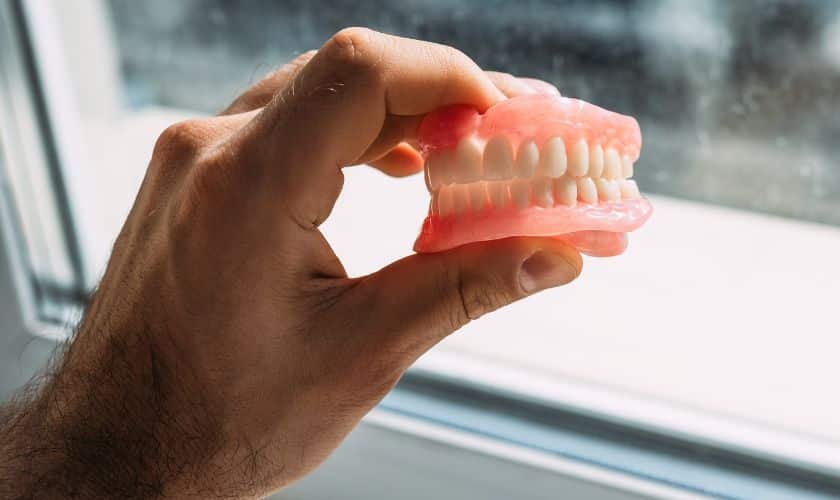For many people, dentures are a necessary part of life. But, how can dentures affect your ability to eat properly? This article will provide an overview of the impact dentures can have on eating and nutrition.
How Dentures Affect Eating Habits
Having dentures can impact your ability to eat certain foods. This is because dentures require the person wearing them to use a different kind of bite pressure than someone with natural teeth. As a result, some food may be difficult or impossible to chew with dentures. Foods that require more bite pressure may be difficult or impossible to chew with dentures, such as steak or apples. Additionally, you may find it hard to eat certain foods that are sticky or chewy when you have dentures in place.
Nutritional Deficiencies
Dentures can also lead to nutritional deficiencies if not cared for properly. Worn-out or ill-fitting dentures can make it harder for the user to adequately grind their food before swallowing it. This leads to an inability to absorb all the vital nutrients from the food they consume. Additionally, issues like gum irritation and mouth sores can occur due to ill-fitting dentures and cause further problems with eating and proper digestion of food.
Caring for Dentures
To ensure that your diet is not affected by your denture care routine, it is important that you take good care of them by cleaning them regularly and making sure they fit properly in your mouth. Proper fitting is critical; as poorly fitting devices can cause pain, sores, and other issues while wearing them. It is also important that you talk to your dentist about any dietary changes you should consider once you begin wearing dentures since there may be certain food choices that should be avoided until you become accustomed to using them correctly. Lastly, it pays dividends for those who wear them to attend regular checkups with their dentist so that small adjustments can be made if needed over time as well as ensuring their overall oral health remains in top condition.
Conclusion
It’s clear that having dental appliances such as dentures affects how we eat and digest our meals since they change our bite pressure as well as how we grind up our food before consuming it. To ensure maximum comfort while wearing these appliances and optimal nutrition from the meals we consume, we need to adhere strictly to proper dental hygiene routines while monitoring our diets regularly for any potential deficiencies arising from wearing these devices over time. All in all, taking good care of both ourselves and our oral health will go a long way in maintaining a healthy diet despite having dental appliances such as dental implants or partial/full sets of false teeth!
FAQ
How will dentures affect my ability to eat properly?
Dental dentures are designed to improve the aesthetics and function of your mouth, and with proper care, they can help you chew and enjoy foods just as if you had natural teeth. However, it is important to note that it may take some time for you to get accustomed to them.
What types of food can I eat while wearing dentures?
You can generally eat most foods while wearing dentules, but softer “sticky” foods or very hard foods should be avoided as they can cause damage or discomfort when biting down. Additionally, it is important to cut food into small pieces in order for the dentules to properly grip them.
How do I clean my dentules after eating?
After eating, gently brush your dental dentures with a soft toothbrush and non-abrasive cleanser such as mild dish soap or hand soap. You may also rinse them in cool water before brushing in order to remove any food particles that may have become stuck on them during the meal. Avoid using hot/boiling water and harsh chemicals such as bleach or ammonia when cleaning your dentules since these can cause damage and discoloration over time.
